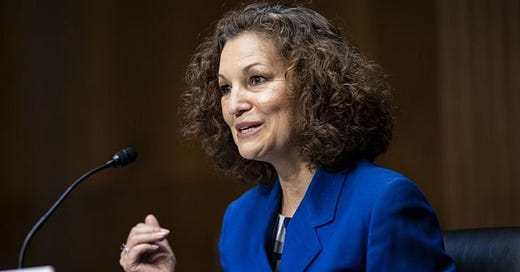It’s been a good eight days or so for those who wish to see the National Labor Relations Board enforce federal labor law as written:
On July 12, the House appropriations committee reported a budget bill that contained a proposed $317 million in funding for the Labor Board in FY22. That is $15 million more than the Biden administration requested for the agency and would represent a $43 million increase from its current budget, allowing the Board to potentially hire even more help than the 136 new full-time employees it projected using the administration’s number. The Senate may whittle down that number, but the added boost from the House’s efforts almost certainly improved upon whatever the final figure would have been.
On July 14, key Senate Democrats announced that they were including the Protecting the Right to Organize Act in the FY22 budget bill. Later developments made clear that Democrats would only include portions of the PRO Act that would likely pass the budgetary reconciliation process, namely the monetary fines for employer unfair labor practices, but this was arguably the most important part of the bill in terms of strengthening the NLRB from an agency that begs for voluntary compliance into one that can credibly demand observance of the National Labor Relations Act.
On July 16, a federal judge from the District of New Jersey upheld President Joe Biden’s termination of former General Counsel Peter Robb, in a case that involved a petition by the Labor Board for a Section 10(j) injunction. This is far from the end of the Robb saga in the federal courts, but two things are worth noting here: (1) this was a judge appointed by George W. Bush, and (2) the judge’s decision voiced approval of the chief argument put forward by the Board and amicus Department of Justice—that the lack of any just-cause language in the NLRA regarding the GC (as opposed to the tenures of the Board members) strongly suggests Congress intended to make the GC essentially an at-will employee. I simply do not see a way around this argument for those challenging Biden’s authority in this realm.
And last, Vice President Kamala Harris cast the tie-breaking vote just hours ago to invoke cloture on Jennifer Abruzzo’s nomination to serve as Biden’s replacement for Robb. Some had wondered whether all 50 Senate Democrats would stand united on the Abruzzo nomination, and today’s events all but assures her confirmation to the position.
As historically one of the most controversial agencies in the federal government, it is rare that the NLRB ever gains any semblance of positive momentum, especially in the current partisan environment. It is thus encouraging to see the Board’s friends exercising at least some political capital towards it.





Not only that, but the Senate HELP committee appears poised to advance (albeit via the same bizarre tie-vote-leading-to-discharge-petition process that was used for Abruzzo) the two Democratic nominees to the Board after a committee vote tomorrow. It's conceivable that they could be confirmed by the time the Senate goes on recess on August 4. (Of course, one of them could not be sworn in until the term of his predecessor expires on August 27, but it would still be great to get things up and moving with no needless delay.)